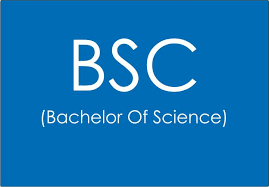Call For Inquiry
B.Sc.
A B.Sc. stands for a Bachelor of Science, which is an undergraduate academic degree awarded for programs that typically focus on natural sciences, technology, engineering, or mathematics (STEM) fields.
Overview
- Duration: The duration of a B.Sc. program varies by country and specific course of study, generally taking three years (common in India, UK, Australia) or four years (common in the US, Canada) to complete.
- Focus: The degree emphasizes a scientific approach, involving experiments, data analysis, quantitative reasoning, and theoretical knowledge in specific scientific disciplines. It is designed to provide a strong foundation for research, technical careers, and further scientific studies.
- Curriculum: The coursework is typically more specialized and technical compared to a B.A., requiring a rigorous understanding of scientific principles and often involving extensive laboratory work.
Common Subjects and Specializations
Students pursuing a B.Sc. can major in a wide range of scientific and technical disciplines:
- Physics
- Chemistry
- Mathematics
- Biology (Botany, Zoology)
- Computer Science
- Environmental Science
- Biotechnology
- Agriculture
- Nursing
- Forensic Science
Career Paths
A B.Sc. degree provides the necessary skills for various careers in scientific, technological, and related fields:
- Research and Development: Lab Technician, Research Assistant, Scientist (with further education).
- Healthcare: Nursing, Pharmacy, Nutritionist, Lab Technologist.
- Technology: Software Developer, Data Analyst, IT Consultant.
- Education: Science Teacher, Professor (with further education).
- Industry: Quality Control, Manufacturing, Environmental Management.
Further Education
B.Sc. graduates have numerous options for advanced studies:
- M.Sc. (Master of Science) for subject specialization and research.
- M.Tech. (Master of Technology) for technical fields like Computer Science.
- MBA (Master of Business Administration) for moving into management or administration roles in science and technology companies.
- Ph.D. for a career in academia and research.
- Professional Degrees: M.D. (Medicine) or other advanced professional qualifications depending on the field of B.Sc.
A B.Sc. stands for a Bachelor of Science, which is an undergraduate academic degree awarded for courses in scientific, engineering, and technological fields. It is a highly popular option for students with a science background in their secondary education.
Overview
- Duration: The program typically takes three to four years to complete, depending on the country and specific curriculum.
- Focus: The B.Sc. degree emphasizes scientific principles, analytical thinking, research skills, and practical laboratory work. The curriculum is more structured and subject-specific compared to a B.A.
- Eligibility: Generally, students must have completed their 10+2 (Class 12) in the science stream with subjects such as Physics, Chemistry, Mathematics (PCM) or Physics, Chemistry, Biology (PCB).
Common Subjects and Specializations
B.Sc. programs offer a wide range of specializations allowing students to focus on a particular area of science.
- Pure Sciences: Physics, Chemistry, Mathematics, Biology (Botany/Zoology).
- Applied Sciences: Biotechnology, Microbiology, Biochemistry, Forensic Science, Environmental Science, Agriculture, Nursing.
- Computer & Technology: Computer Science, Information Technology (IT), Data Science, Artificial Intelligence/Machine Learning.
Career Paths
A B.Sc. degree provides a strong foundation for various careers in both the private and government sectors.
- Research & Development: Research Assistant, Lab Technician, Scientist.
- Healthcare: Medical Laboratory Technician, Registered Nurse, Health Educator (with specialized B.Sc. degrees).
- Information Technology: Software Developer, Data Analyst, Network Administrator (especially with B.Sc. Computer Science/IT).
- Education: School Teacher, Lecturer, Professor (often requiring further studies like B.Ed. or M.Sc.).
- Other Fields: Quality Control, Pharmaceuticals, Agriculture, and various government sector jobs through competitive exams.
Further Education
Graduates often pursue higher studies to specialize and enhance their career prospects:
- M.Sc. (Master of Science)
- MCA (Master of Computer Applications)
- MBA (Master of Business Administration)
- Ph.D. (Doctor of Philosophy)
- Professional Certifications in fields like data analytics, cybersecurity, or clinical research.

